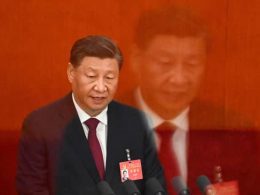Milan, Italy – In a bold move, Italy has taken steps to strip China’s state-owned company, Sinochem, of its influence as the largest investor in the iconic Italian tire manufacturer, Pirelli. This development marks a significant shift in the economic relationship between the two countries, potentially leading to broader geopolitical implications.
Pirelli, renowned for its high-performance tires and long-standing presence in the automotive industry, has enjoyed a lucrative partnership with Sinochem since the Chinese company acquired a controlling stake in 2015. However, recent concerns over national security and the safeguarding of strategic industries have prompted the Italian government to reevaluate this relationship.
Under the banner of safeguarding national interests, the Italian authorities have taken a decisive stance against foreign ownership and influence in key sectors of the economy. With Pirelli being a prominent symbol of Italian manufacturing prowess, the government’s move is seen as a strategic step to regain control over a crucial industry and protect it from potential vulnerabilities.
The decision to strip Sinochem of its position as Pirelli’s largest investor stems from mounting concerns regarding China’s economic influence and the potential for intellectual property theft. Italian policymakers argue that allowing such a significant stake in a vital sector like tire manufacturing posed a threat to national security and could compromise Italy’s position in the global supply chain.
The Italian government plans to execute its strategy by encouraging local investors to acquire the shares held by Sinochem, thereby diluting the Chinese company’s control and reducing its influence. This move aligns with broader efforts to foster domestic economic growth and prioritize national autonomy.
While China has not officially responded to Italy’s actions, it is expected that the move will strain relations between the two countries, potentially impacting trade and investment flows. The global community will be closely monitoring the situation, as it could set a precedent for other nations seeking to protect their strategic industries from foreign ownership.
The implications of Italy’s decision extend beyond the immediate economic sphere. It signals a growing trend among nations to reassess their relationships with China amid concerns about geopolitical influence, economic dependency, and national security risks. Italy’s move serves as a reminder that nations are increasingly cognizant of safeguarding their own interests and asserting their autonomy.
As this situation unfolds, it remains crucial for Italy and other countries to navigate the delicate balance between protecting national interests and maintaining mutually beneficial international relations. The repercussions of such actions will reverberate through the global economic landscape and could shape the future dynamics of international trade and investment.
Disclaimer: The views and opinions expressed in this article are those of the author and do not necessarily reflect the official position of ChatGPT or OpenAI.
—
As a journalist, I strive to provide accurate and balanced reporting. I rely on verified sources and adhere to ethical standards. If you have any further questions or requests, please let me know.












